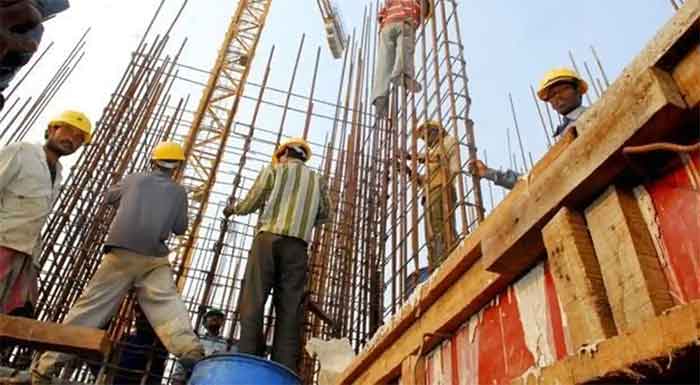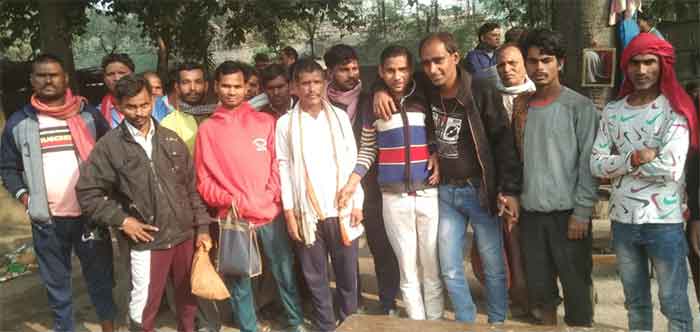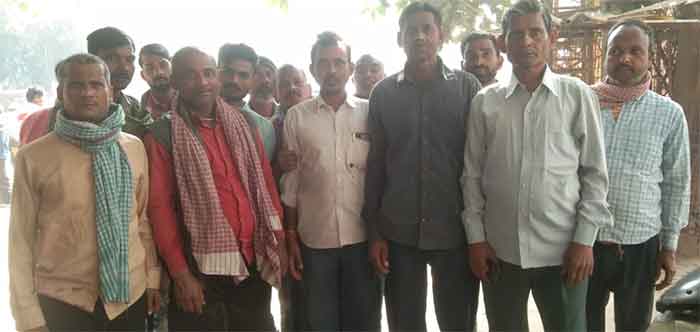
Festival season is fast approaching. Woolens for the winter must be purchased now. This is when construction workers of Delhi would like to get as much work as possible to meet the extra expenses. However precisely at this time when they need more cash, a ban on construction work has been imposed to check further deterioration of air quality. Hence suddenly the workers are without any income.
Even in normal times they get employment on average for about half the days—about 13 to 15 days in a month. With a monthly income of about Rs. 7000 or so a worker has hardly any savings, in fact survival is possible because of the additional income that is earned by a second family member, generally by his wife. On the other hand there are single woman households too.
One can imagine the distress in festival times in tens of thousands of families in Delhi. In fact as similar serious pollution problems exist in many other cities, construction workers in some other cities may be facing or may soon face similar kind of temporary unemployment for about a month or so, or somewhat lesser or longer time, depending on the decisions taken for various cities or parts of cities.
In Delhi the problem can be very serious as construction work constitutes the most important source of livelihood for the urban poor here. It is therefore necessary to take significant steps for providing immediate relief to workers.
Some media reports have already analyzed this temporary ban from the point of view of its impact on the real estate sector and construction companies. However in terms of the distress of people, it is much more important to look at the increasing problems faced by construction workers, men as well as women.
Last year the Delhi government had announced a compensatory payment of Rs. 5000 which although inadequate gave at least some relief to workers. However this payment was provided from the fund which is available with the construction and building workers’ board and is meant for various welfare activities. Hence actually no extra funds were provided to workers and later the welfare activities were very adversely affected. The compensatory payment for workers should be increased and in addition this should not be taken from the fund meant for the normal welfare work of construction workers.
What is more, in recent times the workers registered with the Board have come down significantly because of the malfunctioning of the Board, as seen in a large number of workers being denied their dues or even proper registration and documentation.
The authorities should therefore take special care that workers whose name does not appear in their records but are genuine workers should also get the compensatory payment. Hence the twin concerns should be that the compensatory payment is adequate and it should reach all genuine construction workers.
In fact, this period of a few weeks of forced unemployment can be utilized by the authorities for launching a special drive, in cooperation with the workers’ genuine organizations and unions, to ensure that all workers who for some reason have been deprived of registration and proper documentation can be registered properly. This will also help in the welfare benefits and the compensatory payment reaching all genuine workers who deserve to get these.
Secondly, as the Nirmana organization of construction workers has recently pointed out in an appeal, not all construction activities are polluting or dusty. Hence instead of imposing a blanket ban, the government should in consultation with worker representatives and pollution experts decide which activities can cause dust and pollution and only those activities should be banned temporarily while other activities can continue.
Another option that can be considered is that as long as the construction ban continues, the free grain available to construction workers at ration shops should be doubled.
All these steps if taken up in a proper way can help to bring much needed relief to construction workers during this difficult phase of forced unemployment.
Bharat Dogra is Honorary Convener, Campaign to Save Earth Now. His recent books include Man over Machine, A Day in 2071 and When the Two Streams Met.















































